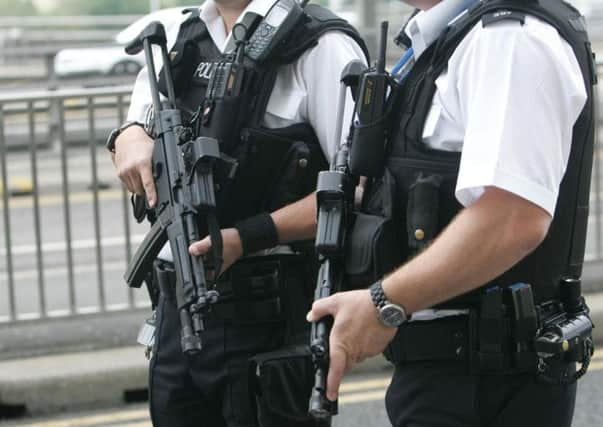Nato leaders warn Russia to pull back or face tougher sanctions


Branding the presence of Russian troops on Ukrainian soil “unacceptable”, the Prime Minister said Western nations were poised to increase pressure on the country’s economy if Moscow did not pull back.
The warning to Russia’s president Vladimir Putin, which came as the Nato conference got underway in Wales yesterday, was backed by US President Barack Obama.
Advertisement
Hide AdAdvertisement
Hide AdThe pair had also joined forces to win support from allies of the 28-member treaty to stave off the rising threat of Islamic State militants in Iraq and Syria ahead of the summit, with further talks over how to tackle the “crisis” due to take place today.
As a military response to Russia’s resistance to the plea to draw back their forces from the Ukrainian border and withdraw support from the separatist rebels has been ruled out thus far, Mr Cameron insisted that placing new economic sanctions on top of those agreed at the end of July were “the right way” to go.
He said: “It is making a difference. The Russian economy was growing, it is now shrinking. Russian banks – some of them are getting short of money. The Russian stock market, the rouble, have suffered.
“What Russia needs to understand is that if they continue with this approach in Ukraine, this pressure will be ramped up.
Advertisement
Hide AdAdvertisement
Hide Ad“The Ukrainians know that they have our support and this sanctions pressure is the right way to tell the Russians that what they are doing is unacceptable.”
The conference is the first to be held in the UK since Margaret Thatcher hosted the gathering in 1990, as the Cold War drew to an end.
With former Soviet bloc neighbours of Russia – like the Baltic states of Estonia, Latvia and Lithuania – fearing they could be the next targets of Russian aggression, Mr Cameron and Mr Obama made it clear that an attack on any one member country would be resisted by the whole alliance.
Meanwhile, the start of the summit also saw French President Francois Hollande bow to months of pressure from fellow allies with the announcement that he was suspending the delivery of the first of two giant Mistral-class helicopters destined for the Russian navy.
Advertisement
Hide AdAdvertisement
Hide AdAs the second day of the summit gets under way today, Nato leaders are expected to agree to the formation of a new high-readiness “spearhead” force able to deploy “several thousand” troops – backed by naval and air support – within a matter of days in response to a crisis.
The alliance is also planning to establish forward operating bases in Eastern Europe where fuel, ammunition and other supplies can by stockpiled ready for use in operations.
Britain and the US, currently the only two of four member states that meet the alliance’s obligation to spend two per cent of GDP on defence are expected to press other Nato leaders to raise their spending on their armed forces.
It comes as the Ministry of Defence was hit by heavy criticism for pressing ahead with plans to cut back the regular Army by 20,000 by 2020 and increase the number of reservists without testing whether this was doable and without proper consultation.
Advertisement
Hide AdAdvertisement
Hide AdA damning report released by the Commons’ Committee of Public Accounts today reveals a number of holes in plans for the future of British armed forces.
Committee chairman Margaret Hodge MP said: “The department prevented full Parliamentary scrutiny of its plans by withholding timely information from the National Audit Office. This must not happen again.”